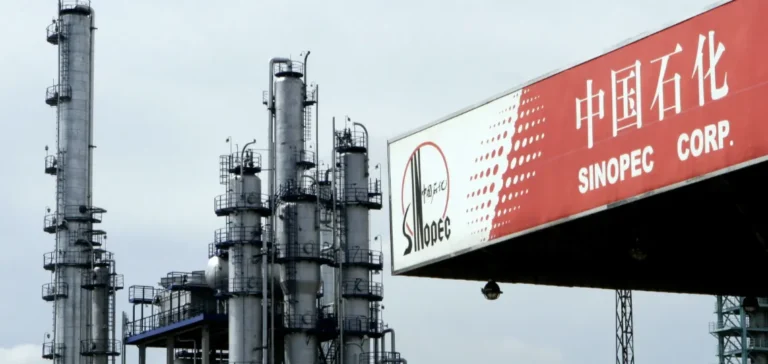Sinopec Shanghai Petrochemical Company, a subsidiary of Chinese conglomerate Sinopec, posted a net loss of 462.1 million yuan (64.4 million dollars) for the first six months of 2025. This result represents a sharp decline compared to the 27.9 million yuan profit recorded during the same period in 2024.
The downturn was primarily attributed to a combined drop in demand for refined and chemical products, which are central to the company’s operations. Net revenue fell by 10.66% to 33.498 billion yuan. Sales of chemical products declined by 16.14%, while refined product sales were down 3.21%.
Price Pressure and Lower Volumes
Sinopec Shanghai Petrochemical cited a pressured market, marked by strong supply and weak demand. The rise of new energy vehicles is curbing traditional fuel consumption, while the chemical sector remains in a cyclical low.
Sales volumes of refined products dropped by 6.92%, directly reflecting weak market demand. Simultaneously, lower crude prices led to reduced average selling prices across all business segments compared to the previous year.
Mixed Production Performance
The refinery processed 6.33 million tons during the period, representing a year-on-year decline of 4.93%. Diesel and jet fuel output fell by 13.56%, while gasoline production slightly increased by 0.14%.
In contrast, ethylene production—a key building block in petrochemicals—rose significantly by 24.34%, reaching 273,300 tons in the first half. This trend diverged from the rest of the company’s processing activities.
Efficiency-Driven Investment
Capital expenditures reached 408 million yuan during the period. A substantial portion of this was allocated to the upgrade of the Shanghai Petrochemical cogeneration unit, part of a project to improve energy efficiency.
On the stock market, Sinopec Shanghai Petrochemical shares listed in Shanghai closed up 1.75% at 2.90 yuan. However, the stock has fallen 4.3% over the past year, while the Shanghai Stock Exchange Composite Index (SSE Composite Index) has gained 12.37%.






















